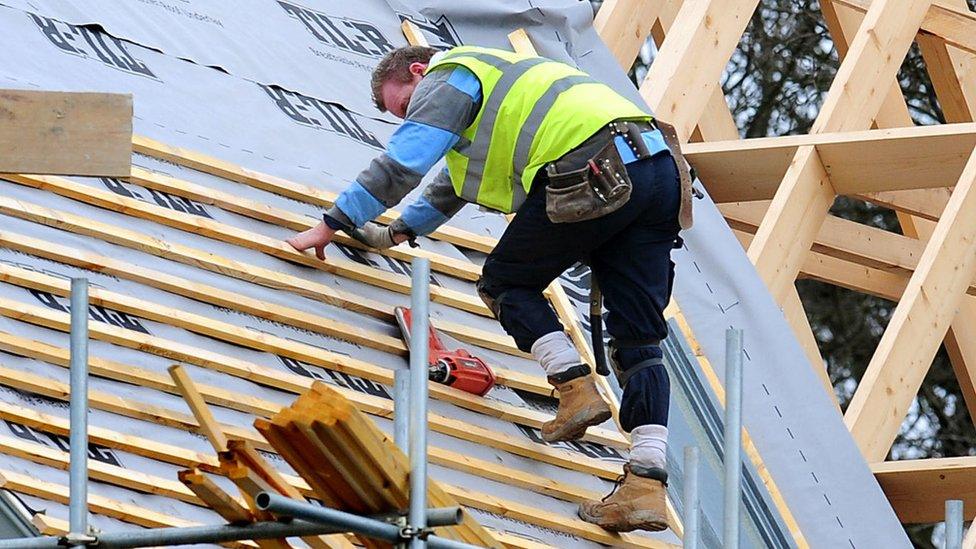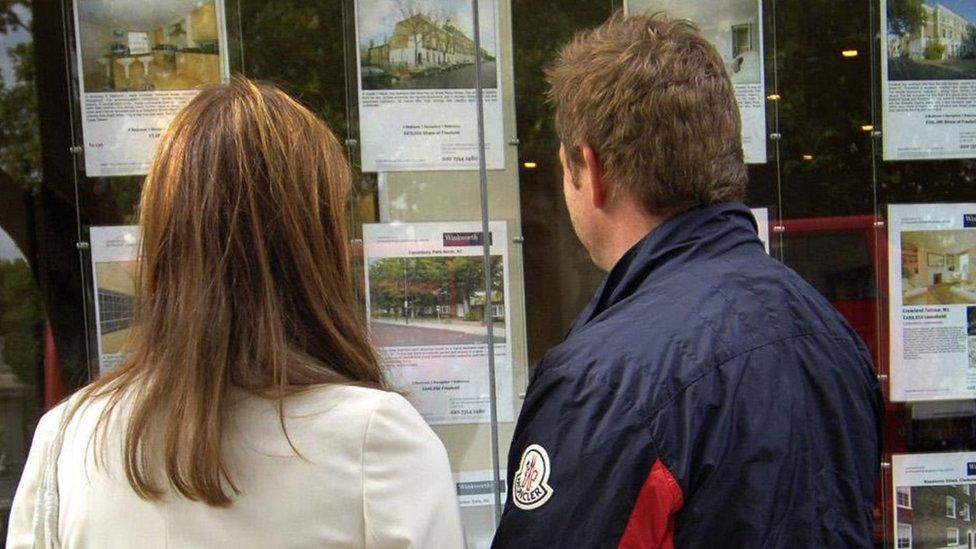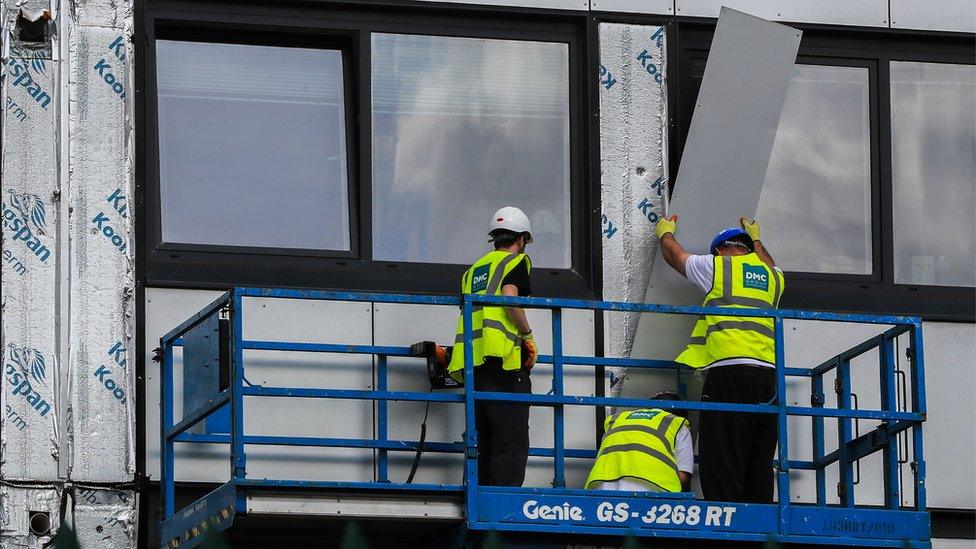Taylor Wimpey rejects housing market bubble fears
- Published

Housebuilder Taylor Wimpey has rejected suggestions that the UK housing market is in a bubble after it announced bumper half-year profits.
Chief executive Pete Redfern told the BBC that market conditions were completely different from the time of the last house price crash in 2007.
Taylor Wimpey completed more than 7,300 houses in the first six months of 2021, a record performance.
It made operating profits of £424m, as against a £16m loss a year earlier.
The firm said it had raised its full-year profit expectations to £820m and expected to complete up to 14,000 new homes over the full 12 months.
It had previously said it expected profits for the year to come in at about £779m.
Mr Redfern told the Today programme that in 2007, mortgage lending had been "significantly laxer" than now, while house price growth had been "well above" inflation levels.
At the same time, there had been a high number of investors buying homes.
"None of those things is true today," he said, adding that the UK currently had an "entirely healthy and stable housing market".
Housing boom
Taylor Wimpey said it had seen "strong demand" for homes in the UK during the first half of this year, underpinned by low interest rates, good mortgage availability and government support for customers in the form of the Help to Buy scheme.
It added that there had been healthy levels of customer interest in reservations, extending well beyond the end of the stamp duty holiday.
It also reiterated that it had brought in a new cladding fire safety provision of £125m to make apartment buildings safe and mortgageable.
As the country emerges from the Covid pandemic, the housing market has been showing signs of a boom.
Last week, property website Zoopla said surging demand for houses would last well into 2022 as buyers continued to look for more room after being cooped up during the pandemic.
A search for space had pushed up the average price of a house by 7.3% over the past year, reaching a new high of £230,700, it said.
Related topics
- Published27 July 2021

- Published2 March 2021
